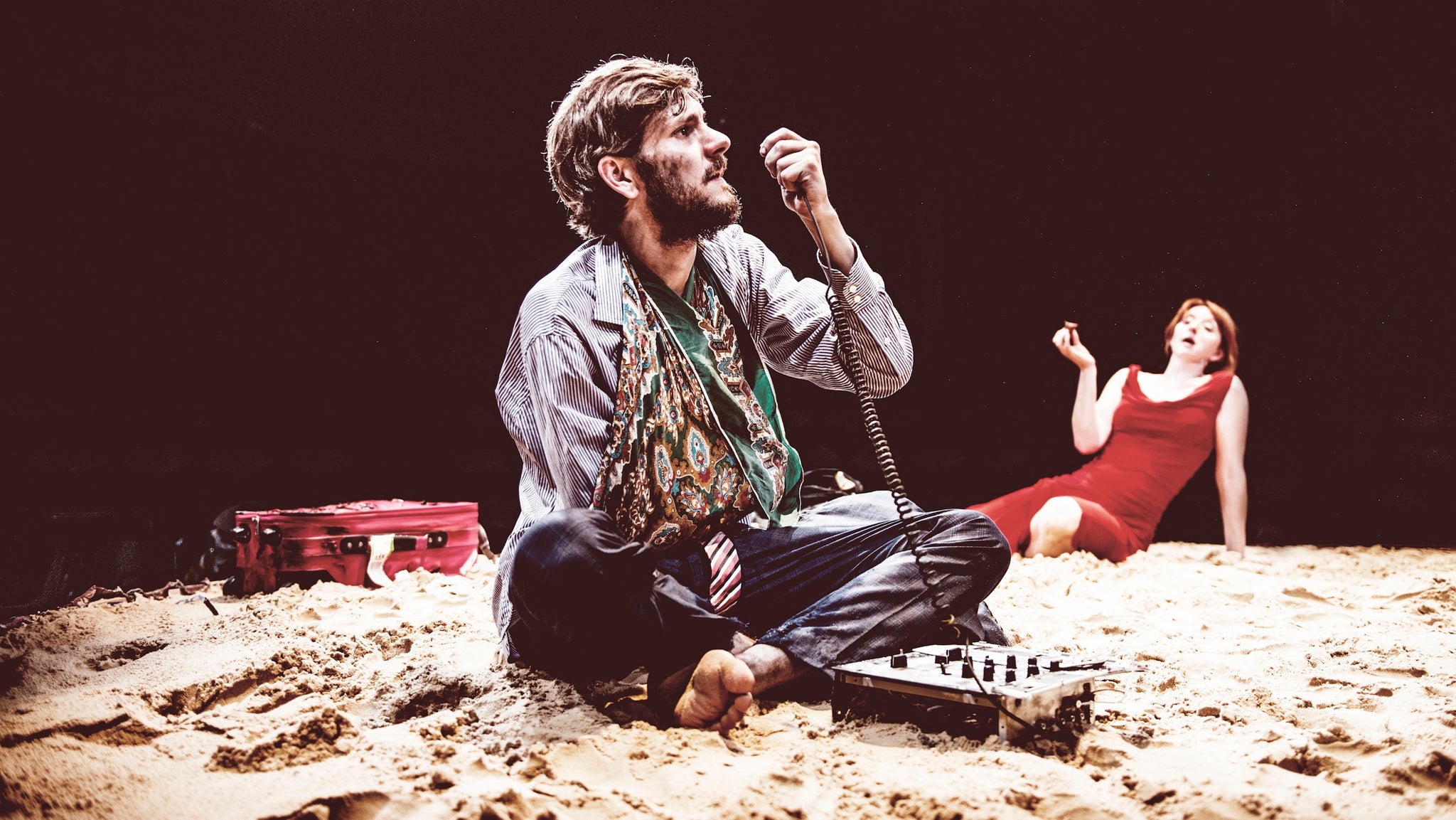Plane-crash comedy makes it hard to laugh
Had Holes been a television drama, it would have been pulled


Your support helps us to tell the story
From reproductive rights to climate change to Big Tech, The Independent is on the ground when the story is developing. Whether it's investigating the financials of Elon Musk's pro-Trump PAC or producing our latest documentary, 'The A Word', which shines a light on the American women fighting for reproductive rights, we know how important it is to parse out the facts from the messaging.
At such a critical moment in US history, we need reporters on the ground. Your donation allows us to keep sending journalists to speak to both sides of the story.
The Independent is trusted by Americans across the entire political spectrum. And unlike many other quality news outlets, we choose not to lock Americans out of our reporting and analysis with paywalls. We believe quality journalism should be available to everyone, paid for by those who can afford it.
Your support makes all the difference.Censorship in the arts is largely a thing of the past, thankfully. I certainly didn’t think I would ever be advocating what might be considered a form of censorship. But a play currently in performance has made me think twice.
Holes at the Arcola in east London has an excellent cast led by the smashing comic actor Mathew Baynton (you might remember him from TV’s The Wrong Mans); it is written by a fine playwright, and has characters stranded on a desert island exploring deep and not so deep questions, delivering some good laughs. What’s not to like?
Well, only that all this is preceded in the plot by a plane crash. As this paper’s critic quoted, “Planes don’t just go missing!” It probably seemed an innocuous expression to playwright Tom Basden. Now, of course, it feels charged – as does an unfortunate riff on how terrorists don’t bring down passenger planes.
Unfortunate, to put it mildly. The critic of London’s Evening Standard said: “It’s arguably not the best time to open a play – and a comedy at that – about the four survivors of a plane crash that probably came about as the result of a terrorist attack”, while London’s Time Out magazine added that “the timing makes the laughs considerably less easy”.
Of one thing I am 100 per cent certain. Had this been a television drama, it would have been pulled, as TV dramas caught out by events nearly always are. The great thing about theatre is that it is an art form, perhaps the only art form, that is above public-pleasing, knee-jerk reactions to current events, and confronts its audience with uncomfortable truths, be they historical or horribly pertinent, be they performed straight or with humour.
I feel decidedly uncomfortable in arguing that a play should be pulled because of a hugely unfortunate juxtaposition between the fiction of the plot and the awful reality of contemporary events.
But if those events have impinged on a play in a way that could not have been foreseen by writer, director and cast, if what would have been almost harmless fun becomes distasteful, and if the act of laughter feels downright disrespectful following the images of real terrorism, real corpses, real horror and real grief, then there surely is a case for postponing a production. The awful shooting down of a passenger plane in Ukraine occurred before the opening of the play. So there was time to consider and take action.
On this occasion it would have been the right action to postpone or cancel the short run of performances.
Lighting up the Proms
I went this week to the Bristol Proms at the Bristol Old Vic. This excellent initiative aims to present classical music in new ways to bring in new audiences. As I have long advocated screens at some classical concerts, and the conductor actually turning round to talk to the audience and introduce the music, I was glad to see that both screens and chats about the music from both conductors and soloists were in evidence. And there was much more, including a sensory experience of Bach in total darkness, and the dubious pleasure of Will Gregory of Goldfrapp leading an orchestra of 10 Moog-synthesiser players.
Max Hole, chairman and CEO of Universal Music Group, who is a leading light behind the Bristol Proms, went on the offensive recently, saying he had been to a classical concert at London’s Royal Festival Hall and, as well as there being no screens and no chat from the conductor, “the lighting was like the accident and emergency unit of a hospital”. While I love the Bristol Proms, and applaud classical venues adopting innovations to attract young audiences, I think there is room for the traditional concert. But I fear that the Royal Festival Hall might now find it hard to shake off the casualty-department comparison.
Giving honour where it is due
Salford City Council is to honour the A Taste of Honey playwright Shelagh Delaney with an annual day. Shelagh Delaney Day will be on 25 November in Salford, where she was born. “She is one of Salford’s most famous daughters,” explains the city’s mayor, Ian Stewart. He’s right, and to have a day named after a playwright is not only mighty rare, it’s rather wonderful.
Join our commenting forum
Join thought-provoking conversations, follow other Independent readers and see their replies
Comments